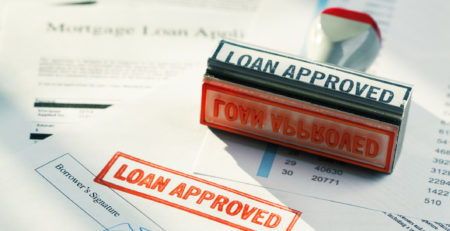The Pros and Cons of Paying Your Bills with Auto-Pay
Paying bills is not anyone’s favorite pastime. However, it must be done and usually on a monthly basis.
Most companies now offer an autopay option as a convenient way to make sure your bills get paid on time, with little effort from you. While autopay is certainly convenient and has many other benefits both for the consumer and the companies receiving payments, there are also some drawbacks to keep in mind when deciding if autopay is right for you.
What Is Autopay?
Autopay is a way of scheduling your bills to be paid on a certain date, usually the bill’s due date, through an automatic withdrawal from your bank or credit union utilizing your routing and account number or credit or debit card. The most critical part is that you do nothing else once you set each bill up for autopay. The payment continues to be processed each month on the date originally selected through the account chosen, with no additional action needed.
Benefits of Autopay
It’s always a good idea to look at both the pros and cons when making any decision. However, when it comes to autopay, the benefits are undeniable.
1. Convenience
With no checks to write, stamps to buy, or calendars to remember, the convenience of autopay is without a doubt one of the greatest perks. Life is busy. Any way to simplify essential but not exactly exciting tasks leaves that much more time to do the things you enjoy.
2. Improved Credit Score
Paying your bills on time is a huge contributor to your credit score. By automating your bill pay, you eliminate the possibility of a particular due date slipping your mind and negatively impacting your credit score.
3. Discounts
Not only does paying your bills on time through autopay prevent damaging your credit, but it also prevents late fees. In addition, many companies offer incentives, such as discounts for enrolling in autopay.
4. Security
Online security is a constant concern, but you can reduce that concern by entering your account number one time for each bill through autopay rather than every month if you pay online. A third option, putting a check in your unlocked mailbox, is even less secure.
Disadvantages of Autopay
Though the benefits of autopay are numerous, it’s crucial to consider the pitfalls of not paying careful attention to your autopay accounts.
1. Overdraft Fees
It’s easy to lose track of how much is coming out of your account each month when you’re on autopay. This could easily lead to accidental overdraft fees. One solution is to set up electronic alerts reminding you that a bill will autopay soon or that your account is getting low.
2. Increasing Charges
Autopay takes the worry out of remembering to make payments, but it can also take the concern out of paying attention to those payments for increasing costs. Price hikes can easily slip by and accumulate over time if you aren’t paying close attention to monthly charges. This could become a greater problem if an increasing cost is a sign of a bigger problem, such as an unusually high water bill due to a leak you were unaware of. Choosing once a month to review your monthly autopay charges for any changes is recommended to prevent increased charges from going unnoticed.
3. Necessary Updates
New debit or credit cards or changes to accounts will require you to update your autopay accounts as well. Getting lulled into a sense of security with autopay could result in missed or late payments if your account information is not updated.
4. Unused Subscriptions
While most bills are monthly, many subscriptions can be less frequent. When these subscriptions are on autopay, they are often also on auto-renew. Not only might unused subscriptions go unnoticed monthly, but you may find yourself locked into another year of a subscription for something you no longer use or want. These costs can add up fast. Setting up a calendar that gives you advance notice of subscription renewals will help prevent this expense.
5. Missed Manual Bills
Even though the majority of bills can be set to autopay, there are still many that can’t. Those manual bills can get lost in the to-do pile if you become too reliant on autopay. However, having a specific place to put these bills and a regular time to address them will reduce the possibility of missing a payment.
When Is It Best to Use Autopay?
Autopay is best utilized for bills that are due at the same time every month and are generally for the same amount. A car payment is a good example of a consistent payment and due date that may work well with autopay. Payments that are staggered, infrequent, or the amounts change often may not be as good a fit for autopay.
Best Practices for Autopay
Implementing a few best practices will go a long way towards ensuring the benefits outweigh the disadvantages of autopay.
- Review your checking or savings account monthly. Compare and confirm your autopay transactions. Dispute any possible errors.
- Create a budget and include your autopay payments. Check them off each month to prevent any being missed.
- Get copies of your credit report. Your credit report is available to you by law for free annually at AnnualCreditReport.com. Reviewing your credit report at least yearly will make you aware of any possible identity theft issues.
Even with all precautions taken, unforeseen circumstances can result in additional bills or expenses that make having the cash available in your account for your autopay bills impossible. Koster’s Cash Loans understands that life happens and can offer relief when you don’t have the free cash to pay important bills. With no checking account needed, flexible payment schedules, and early pay-off discounts, Koster’s Cash Loans is here to help keep you moving forward. Contact us for more information on our easy application process.











